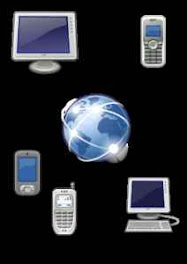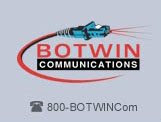With an appropriately programmed VoIP terminal—an IP phone, analog gateway with conventional phone, or PC-based softphone—users can plug into a high-speed Internet connection anywhere in the world and make or take calls and use PBX features pretty much as if they were in the office.
Best of all: no overseas toll charges when calling back to your home country or region.
But can you rely on a VoIP services to work well and consistently overseas? Enterprise VoIPplanet put the theory to the test recently. The short answer: yes, you can—although the experience may not be totally glitch-free.
Your correspondent recently spent a three-month working sabbatical in Sicily, Italy. A reliable and inexpensive voice connection back to North America was crucial for conducting interviews and other business.
If you have employees or associates who work abroad all or part of the time and need to be in constant and reliable voice contact with the main office and other destinations in the home country, you face the same challenges I did, and VoIP can deliver the same benefits.
I worked with Primus Canada, the Canadian division of McLean, Virginia-based Primus Telecommunications Group Inc., which also has offices in Mexico, Puerto Rico, Germany, France, Japan, and Australia.
Primus let me test its Hosted PBX service, which is similar to others of its kind in offering big-firm phone system functionality—including voice mail as e-mail, find-me-follow-me, sophisticated call routing, and other features—all for a fixed monthly per-seat fee.
Cost per seat for the Primus Canada service, which includes phone set and dedicated T1 access to your office: about $24 to $40. (Charges from Primus in the U.S. may differ.)
The company initially set me up with two extensions and two different terminal devices. One was a Linksys SPA2102 analog gateway, a device not much bigger or heavier than a cigarette package, which I took with me to Italy. The other was a Cisco 7961G IP feature phone, which I left at home to be used by family looking after the house. (It was too big to easily pack.)
I also took with me to Italy the DUALphone 3088, a dual-mode Skype/landline cordless phone system from RTX Telecom, a Danish company. (I wrote a review of the DUALphone for this publication two years ago.)
Its wireless base station plugs into both a network router (for Skype) and a landline—or in this case, the Primus gateway. The cordless handset with its charging cradle can be placed and used anywhere within 50 meters of the base station.
The apartment I rented in Sicily included very high-speed (supposedly 7 megabit per-second) ADSL-based Internet service from Telecom Italia, the incumbent phone company in Italy. The Wi-Fi modem/router, from Sitecom, was located in the apartment and easily accessible.
Setting up the phone system took minutes once the gear was unpacked—I had done a dry run back home. The DUALphone base station plugged into one Ethernet port on the Sitecom router, the Primus Linksys gateway into another.
The phone lets you choose which service you use to make calls—or you can set it to use either Skype or the landline by default. Primus dial tone was available within less than two minutes of plugging in the gateway.
The first call back to North America was nerve-wracking. The success of the entire voyage depended on the telecommunications solution working well. To my great relief, it worked fine.
Calls to and from the Cisco desk set back home using the DUALphone handset on the Sicilian end were virtually indistinguishable from test calls I’d made with the Primus and RTX gear before leaving home—good sound quality, no noticeable latency.
One of the beauties of PBXs, hosted or otherwise, is four-digit dialing between extensions. With the set-up I tested, it was possible for my daughter to dial four digits to reach me in Italy, or vice versa.
In later calls to outside numbers in North America, there was some latency and just noticeable jitter, but it was almost always only in the first few seconds of a connection, after which the call stabilized and the experience was similar to or indistinguishable from making calls within North America.
Over the 11 weeks I was working in Sicily, I placed or received well in excess of 100 calls using the Primus service. I can remember only one on which latency and jitter made conversation impossible. (Hanging up and placing the call again solved the problem.) There were also one or two dropped calls.
This is not to say there were no serious problems. Dialing calls using the DUALphone handset turned out to be frustrating in the extreme.
As with many PBXs, by default, the Primus service requires you to dial 9 to get an outside line, then the full ten-digit number with area and country code. On many first, second and subsequent attempts to dial a number in North America, Primus would fail to put the call through and tell me I needed to first dial a "long-distance access code"—by which it apparently meant the ‘9’ and/or ‘1’.
According to the always helpful and always available Primus Hosted PBX technical support team, there was a "known issue" with the Linksys gateway that sometimes caused it to fail to receive or register all digits dialed.
This problem has also been reported by users making intra-North American calls, so it wasn’t only or just to do with being in Europe and more router hops from the Primus server. It also was not a problem for me when testing the Cisco desk set, nor has it been reported by other IP phone users, Primus says.
The dialing woes became enough of a frustration, though, that for a time, I was using SkypeOut for scheduled calls so I wouldn’t have to worry about having to make several attempts to get a connection and end up being late for or missing an appointment.
Although I made far fewer calls using Skype, on the calls I did use if for, it delivered impressive call quality and connection reliability—better than I had experienced a couple of years ago with SkypeOut, and almost as good as with Primus.
I had Skype’s Unlimited World monthly subscription as a back-up to Primus—$12.95, but currently recession-priced at 25 percent off. It gives you unlimited calling to landlines in over 40 countries.
After I complained enough about the dialing problems with the Linksys gateway, Primus set me up with a third extension configured to use its downloadable softphone software, developed by CounterPath. This was a more than adequate solution.
Customers of Primus's hosted PBX in Canada can pay for a separate softphone extension (about $24) or add softphone capability to an existing extension for about $4. (In the latter case, they can configure the service to ring both phones.)
Call quality declined noticeably but not disastrously with the softphone. Jitter became a minor problem, with voices at the other end sometimes sounding a little fuzzy and robotic. And echo on the line was occasionally a minor problem.
But voice quality, with only a couple of exceptions, was always at least adequate, and sometimes as good as when using the gateway and RTX handset. Connections were consistently solid.
There were also some additional benefits to using the softphone. For one thing, it simplified recording phone interviews, something journalists need to do, but perhaps not many other types of workers.
When using the gateway and DUALphone handset, I had to connect a portable digital recorder with a phone line splitter and then disconnect it from the phone and connect it to my computer to download recordings. With the CounterPath softphone, I could click a button in the dial-pad interface to start recording directly to the computer’s hard drive. It saved several steps and produced better recordings.
The CounterPath softphone also automates importing contacts from Outlook/Exchange, and then lets you autodial by contact. You do have to remember to import contacts again each time you add new ones, but the CounterPath import utility is smart enough to only import the new ones so it only takes seconds.
Bottom line? The experience of using a North American VoIP service overseas will of course depend to a large extent on the service and the Internet connection. In this case, both were easily up to the task.
(By Gerry Blackwell)
--------------------------------------------------
Voip Atlanta is the first and last name you need in the technology
of the transmissionof voice through the Internet. It is also known
asIP telephony, Internet telephony, voice over broadband,
broadband telephony, and broadband phone.We have deliver
innovative, cost-effective, and efficient Data, Voice
connectivity for your businesses.
678-391-9136
Powered by Marketing Atlanta







